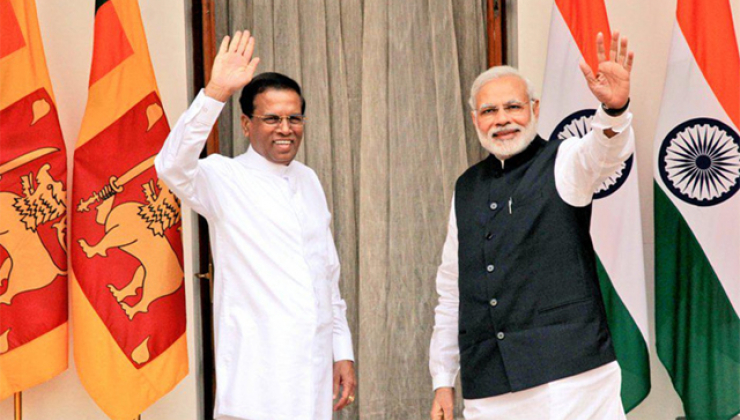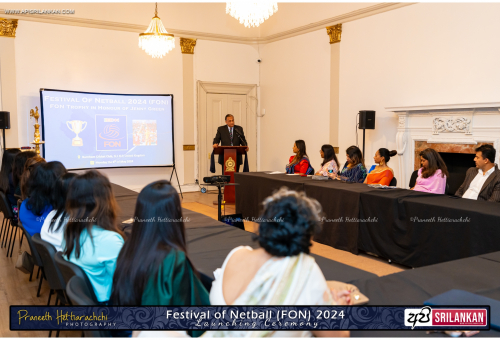Sri Lankan President Maithripala Sirisena signed a deal with India to receive training for his country’s civilian nuclear program, a sign of improving ties as he looks to reduce the island nation’s dependence on China.
Sirisena, on his first overseas tour since winning an election last month, hailed his country’s close relations with India in a joint briefing with Prime Minister Narendra Modi in New Delhi. Under the deal, India would provide knowledge and expertise to Sri Lanka as it seeks to build a nuclear plant.
“The bilateral agreement on civil nuclear cooperation is another demonstration of our mutual trust,” Modi told reporters on Monday. “This is the first such agreement that Sri Lanka has signed. It opens new avenues for cooperation.”
India is one of the few countries with expertise in reactors suited to smaller power grids, and state-run Nuclear Power Corp. has previously expressed interest in exporting them. An international embargo placed on India over its atomic bomb tests in 1974 and 1998 was lifted seven years ago, allowing the nation to begin selling reactors overseas.
Sirisena has promised to rebalance Sri Lanka’s foreign relations away from China. Officials under his predecessor, Mahinda Rajapaksa, had rankled India by suggesting that Pakistan -- whose reactors have mostly been built by Chinese companies -- may help it build nuclear power plants.
Interlinked Destinies
Modi on Monday said that India and Sri Lanka would also expand defense and security ties. The nations have shared interests in maritime security in the region, he said.
“India is Sri Lanka’s closest neighbor and friend,” Modi said. “I believe that our destinies are interlinked. Our security and prosperity are indivisible.”
Chinese submarines docked twice in Colombo last year, triggering protests from India. The visits were for “replenishment purposes,” and Sri Lanka wouldn’t act against India’s security interests, V.K. Singh, deputy minister for external affairs, said in a written response to India’s parliament in November.
China has invested heavily in Sri Lanka infrastructure projects and supported Rajapaksa in the face of U.S.-led inquiries into human rights abuses allegedly committed during the end of a 26-year civil war.
“Sri Lanka certainly wouldn’t be foolish enough to kick China out –- not when billions of dollars of investment go with it –- but will likely loosen its embrace,” Romita Das, an analyst at Control Risks in Singapore, said in an e-mail before today’s announcement. “The nature of the rebalancing as it unfolds will also have significant implications on China’s efforts to project its power in the Indian Ocean Region.”
Nuclear Cooperation
Sri Lanka and India began talks on a civilian nuclear cooperation pact in 2012 and held another two rounds of talks last year, according to government statements.
Sri Lanka is seeking to incorporate nuclear into its long-term energy plans to diversify from biomass, hydroelectricity and imported oil products, then-Power Minister Patali Champika Ranawaka told the Business Times in a 2010 interview. It was considering help from India, Pakistan, Russia, France and the U.S., he said at the time.
India offers more than five decades of experience in atomic energy. Its industry has built 5.8 gigawatts of capacity using mostly indigenous technology and plans to increase that to 62 gigawatts by 2032. Last month, Modi and U.S. President Barack Obama announced a breakthrough on a long-stymied 2008 civilian nuclear agreement that could trigger an expansion of nuclear imports and projects.
-bloomberg
India signs nuclear pact with Sri Lanka, countering China
Ziggy |
16 Feb, 2015 03:55PM
| Leave a comment







COMMENT